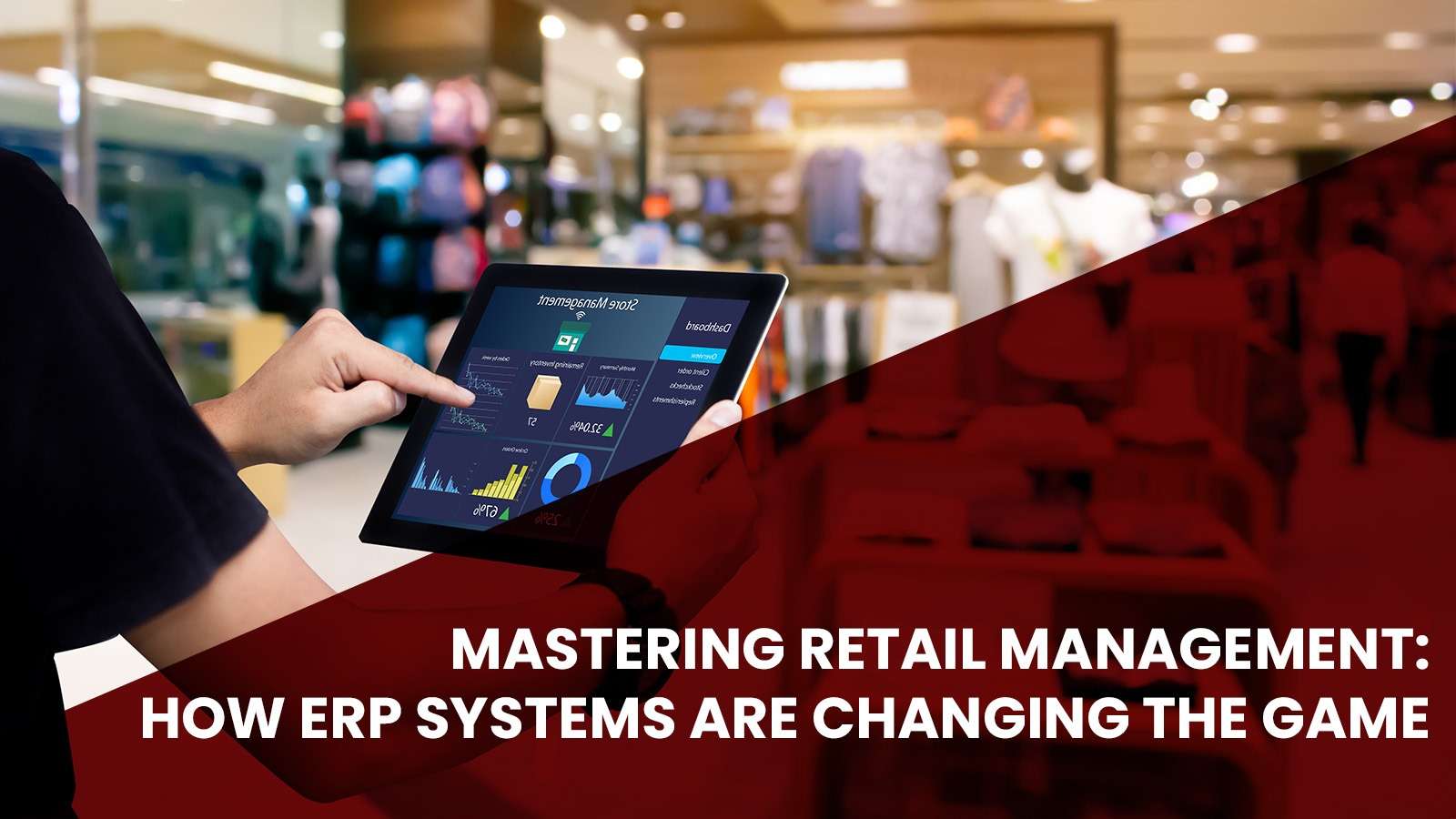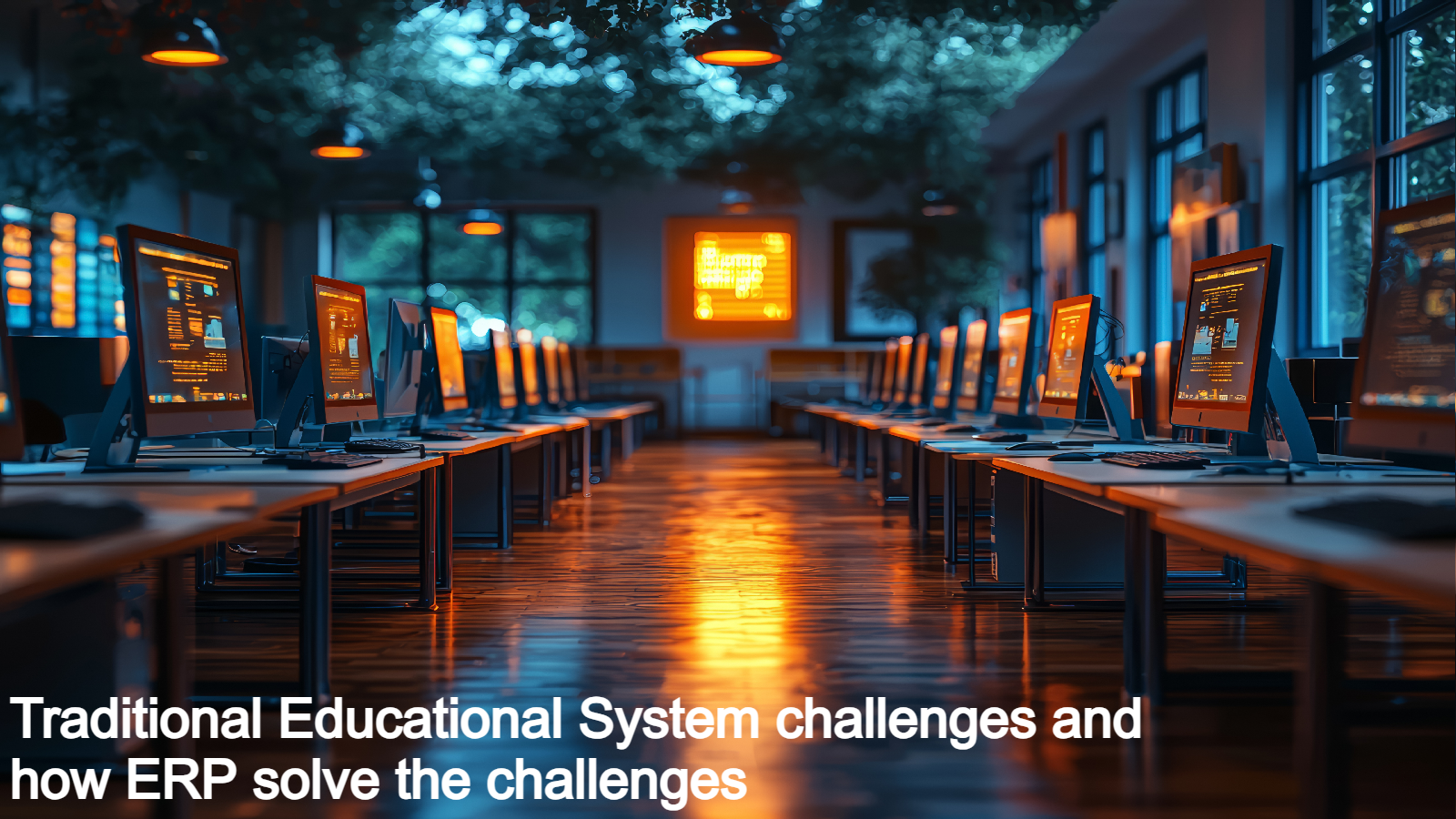Becoming an expert in retail management is crucial to thrive in today’s competitive retail environment, and to achieve success, you need the right tools. A complete game-changer in the industry is Enterprise Resource Planning (ERP).
ERP systems with their wide range of features are taking over the retail industry. In this article, we’ll explore the impact of ERP systems on retail management and how they are revolutionizing how retailers operate.
The Power of ERP Systems
ERP systems were first introduced in the manufacturing sector but soon were adopted in different sectors, including education and retail, which shows how powerful ERP systems can be.
Let us go over some benefits of ERP systems: Comprehensive Integration:
The main advantage of ERP systems is their ability to seamlessly integrate various business functions. ERP systems unify departments, such as finance, human resources, supply chain, and customer relations, into a single, cohesive platform. This integration fosters real-time communication, eliminates data silos, and enhances collaboration, resulting in a more efficient and streamlined operation.
Scalability and Adaptability:
The power of ERP systems extends to their scalability and adaptability. As businesses grow or face evolving challenges, ERP systems can flexibly accommodate changing needs. Whether it’s expanding into new markets, adding product lines, or adjusting to regulatory changes, ERP systems provide a foundation that can evolve with the organization.
Data Security and Compliance:
Ensuring the security of sensitive data and compliance with industry regulations is a top priority for businesses. ERP systems incorporate robust security measures to protect critical information. Moreover, they facilitate compliance by automating processes related to regulatory requirements, reducing the risk of non-compliance and associated penalties.
Now, let’s look into why ERP systems are game-changers in the retail industry.
Enhancing Efficiency and Productivity
Through automation and streamlined operations, there is increased efficiency and productivity. With ERP systems, retailers can manage their business functions, from inventory management to customer relationship management, more effectively.
Real-time Data Insights
One of the primary benefits of ERP systems is their ability to provide real-time data insights. With the power of data at their fingertips, retailers can stay ahead of market trends and deliver marketing strategies regarding pricing and customer preferences.
Streamlined Inventory Management
Optimizing Stock Levels
Effective inventory management is crucial for any retail business. ERP systems help retailers optimize their stock levels by providing data-driven suggestions.
Reducing Shrinkage
Shrinkage, or inventory loss, is a significant concern in the retail industry. Through real-time data and prompt notice, there is little to no chance of inventory loss. ERP systems also give alerts when it senses suspicious activities. This minimizes theft and any operational errors.
Seamless Customer Experience
Personalized Marketing
By analyzing customer data with ERP systems, retailers can deliver personalized shopping experiences. Targeted marketing campaigns, special offers, and product recommendations tailored to individual preferences are some ways ERP systems help boost customer loyalty and satisfaction.
Efficient Order Fulfillment
ERP systems ensure that orders are processed quickly and accurately, reducing the possibility of errors and customer dissatisfaction, which leads to higher customer retention rates.
Operational Optimization
Vendor Management
Retailers rely on a network of vendors and suppliers. ERP systems automate processes such as order placements and payment, making timely deliveries possible and vendor management effortless.
Financial Management
ERP systems provide tools for comprehensive financial tracking and reporting, making it easier for retailers to manage their budgets, cash flow, and profitability.
Future Trends of ERP systems
Enhanced Integration of eCommerce and Physical Stores:
As the lines between online and offline retail continue to blur, future ERP systems are expected to offer seamless integration between eCommerce platforms and brick-and-mortar stores. This integration will provide retailers with a unified view of inventory, customer data, and sales across different channels, enabling a more cohesive and personalized shopping experience.
IoT Integration for Supply Chain Optimization:
The Internet of Things (IoT) is set to revolutionize supply chain management within ERP systems. Retailers will utilize IoT devices to gather real-time data on inventory levels and consumer behavior. This data will be seamlessly integrated into ERP systems, facilitating dynamic and responsive supply chain adjustments, reducing inefficiencies, and enhancing overall logistics.
Focus on Cybersecurity and Data Privacy:
As retail ERP systems become central repositories for vast amounts of sensitive data, ensuring robust cybersecurity measures and data privacy will be paramount. Future ERP solutions will invest heavily in advanced security features to protect against cyber threats, ensuring the confidentiality and integrity of customer and business information through authentication processes, including fingerprint analysis.
Conclusion
As the retail landscape continues to evolve, mastering retail management requires embracing technology that can adapt to the industry’s ever-changing demands. ERP system have proven to be the future in this regard, offering a holistic approach to managing various aspects of a retail business. From seamless integration and operational optimization to enhanced customer experiences and data-driven decision-making, ERP systems are changing the game for retailers, empowering them to navigate challenges and thrive in a competitive market.
Frequently Asked Questions (FAQs)
- What is an ERP system in retail management?
An ERP (Enterprise Resource Planning) system in retail management is a software solution that integrates various business processes, such as inventory management, financial tracking, and customer relationship management, into a single platform for improved efficiency and productivity.
- How do ERP systems improve inventory management in retail?
ERP systems help retailers optimize stock levels, reduce shrinkage, and provide real-time insights into inventory performance, ensuring that products are available when customers need them.
- What are the benefits of personalized marketing with ERP systems?
Personalized marketing through ERP systems allows retailers to create targeted marketing campaigns, offer special deals, and recommend products based on individual customer preferences, leading to higher customer satisfaction and loyalty.
- How do ERP systems enhance order fulfillment in retail?
ERP systems streamline order processing, reducing errors and ensuring timely delivery. This leads to improved customer satisfaction and higher retention rates.
- Why is financial management crucial for retail businesses?
Financial management is essential for budgeting, cash flow management, and overall profitability. ERP systems provide tools for comprehensive financial tracking and reporting, aiding retail businesses in maintaining their financial health.








